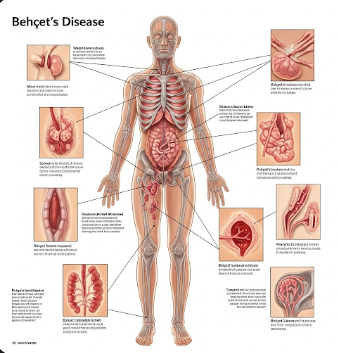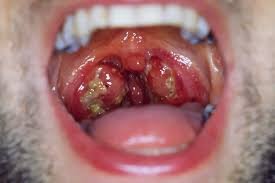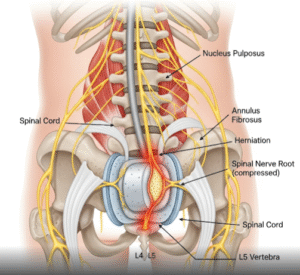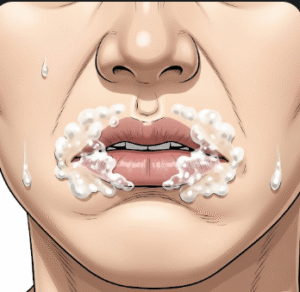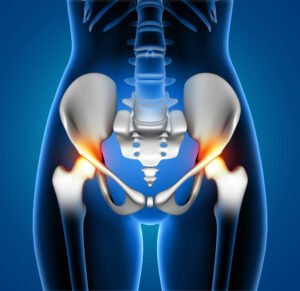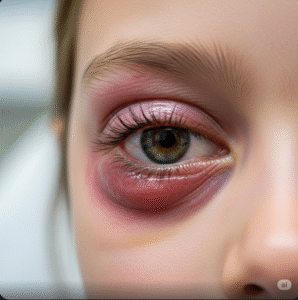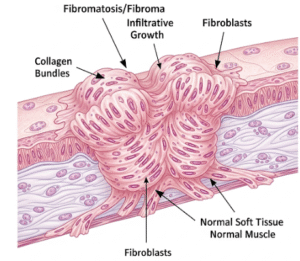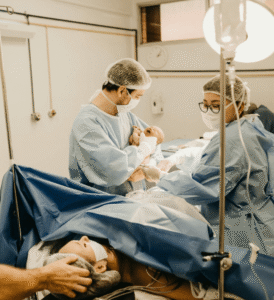Overview
Behçet’s disease is a rare, chronic inflammatory disorder that affects multiple organ systems, including the mouth, eyes, skin, joints, blood vessels, and sometimes the nervous system and gastrointestinal tract. The condition is characterized by recurrent episodes of inflammation that can vary in severity and location over time.
While its exact cause is unknown, Behçet’s disease is considered an auto-inflammatory vasculitis, meaning it involves inflammation of blood vessels throughout the body. This leads to a variety of symptoms, from painful mouth sores to vision-threatening eye inflammation.
In Korea, Behçet’s disease is uncommon but not unheard of, with cases managed at specialized rheumatology and ophthalmology centers. Early diagnosis and appropriate treatment are essential to reduce flare-ups and prevent long-term organ damage.
What is Behçet’s Disease?
Behçet’s disease, also called Behçet’s syndrome, is a multi-system inflammatory disorder first described by Turkish dermatologist Hulusi Behçet in 1937. It involves vasculitis (inflammation of blood vessels), which can affect arteries and veins of all sizes.
The disease follows a relapsing-remitting course, meaning symptoms come and go. Flare-ups may be unpredictable, and symptom severity can range from mild to disabling.
Behçet’s is more prevalent in countries along the historical Silk Road — from East Asia to the Mediterranean — but it has been reported worldwide, including in Korea.
Symptoms
Common symptoms include:
- Mouth ulcers: Painful, recurrent canker sores inside the lips, cheeks, or tongue
- Genital sores: Painful ulcers on the genitals, which may scar over time
- Eye inflammation (uveitis): Redness, pain, blurred vision, and sensitivity to light
- Skin lesions: Acne-like pustules, red nodules (erythema nodosum), or other rashes
- Joint pain: Swelling and pain, often in knees, ankles, elbows, or wrists
- Gastrointestinal symptoms: Abdominal pain, diarrhea, and bleeding in some cases
- Neurological involvement: Headaches, stroke-like symptoms, or confusion in severe cases
Pattern: Symptoms may appear one at a time or in combination. The recurrence and combination of mouth ulcers, genital sores, and eye inflammation strongly suggest Behçet’s disease.
Causes
The exact cause of Behçet’s disease is not fully understood, but it is believed to result from an overactive immune system attacking the body’s own blood vessels.
Potential contributing factors include:
- Genetic predisposition: Strongly linked to the HLA-B51 gene in many patients
- Environmental triggers: Viral or bacterial infections may activate the disease in genetically susceptible individuals
- Autoimmune mechanisms: Abnormal immune response leads to systemic inflammation
Risk Factors
You are more likely to develop Behçet’s disease if you:
- Carry the HLA-B51 genetic marker
- Are aged between 20 and 40 at onset (though it can occur at any age)
- Are from countries along the Silk Road region (including East Asia, the Middle East, and the Mediterranean)
- Have a family history of the disease
Men may develop more severe disease than women in some populations, although both genders are affected.
Complications
If left untreated, Behçet’s disease can cause serious and potentially life-threatening complications:
- Vision loss from repeated eye inflammation
- Aneurysms or blood clots due to vascular inflammation
- Gastrointestinal perforation in severe intestinal involvement
- Neurological damage from brain or spinal cord inflammation
- Permanent joint damage from chronic arthritis
- Psychological impact from chronic pain and disability
Prevention
There is currently no way to prevent Behçet’s disease entirely, as its cause is not fully understood. However, flare-ups can be reduced by:
- Avoiding known triggers such as certain infections or stress
- Adhering to prescribed medications even when symptoms improve
- Regular check-ups with a rheumatologist and ophthalmologist
- Protecting eyes from UV light during flare-ups
- Practicing good oral hygiene to reduce mouth ulcers
In Korea, patients benefit from multidisciplinary care involving rheumatologists, dermatologists, ophthalmologists, and gastroenterologists for comprehensive prevention of complications.
Treatment Options in Korea
There is no cure for Behçet’s disease, but treatment focuses on controlling inflammation, reducing flare frequency, and preventing organ damage. Korean hospitals use international best practices combined with advanced diagnostics.
1. Diagnosis
- Detailed medical history and symptom review
- Physical examination of ulcers, skin, and joints
- Eye examination using slit-lamp microscopy
- Blood tests to rule out other autoimmune conditions
- Imaging (MRI, CT scans) for neurological or vascular involvement
- Pathergy test (skin prick reaction) in some cases
2. Medications
For mild symptoms:
- Topical corticosteroids for mouth and genital sores
- Colchicine to reduce joint pain and erythema nodosum
- Nonsteroidal anti-inflammatory drugs (NSAIDs) for pain
For moderate to severe symptoms:
- Oral corticosteroids (prednisone) for rapid inflammation control
- Immunosuppressive drugs such as azathioprine, methotrexate, or cyclosporine
- Biologic therapies like infliximab or adalimumab for resistant cases
3. Eye Involvement Treatment
- Corticosteroid eye drops
- Immunosuppressive therapy to prevent vision loss
- Close monitoring by ophthalmologists at specialized Korean eye clinics
4. Vascular & Neurological Involvement
- High-dose corticosteroids
- Immunosuppressive drugs or biologics
- Anticoagulants in cases of blood clot formation (with careful monitoring)
5. Supportive Care in Korea
- Seoul National University Hospital, Asan Medical Center, and Samsung Medical Center have specialized autoimmune disease units
- Multidisciplinary approach for joint, skin, eye, and vascular care
- Patient education programs on self-monitoring and flare prevention

